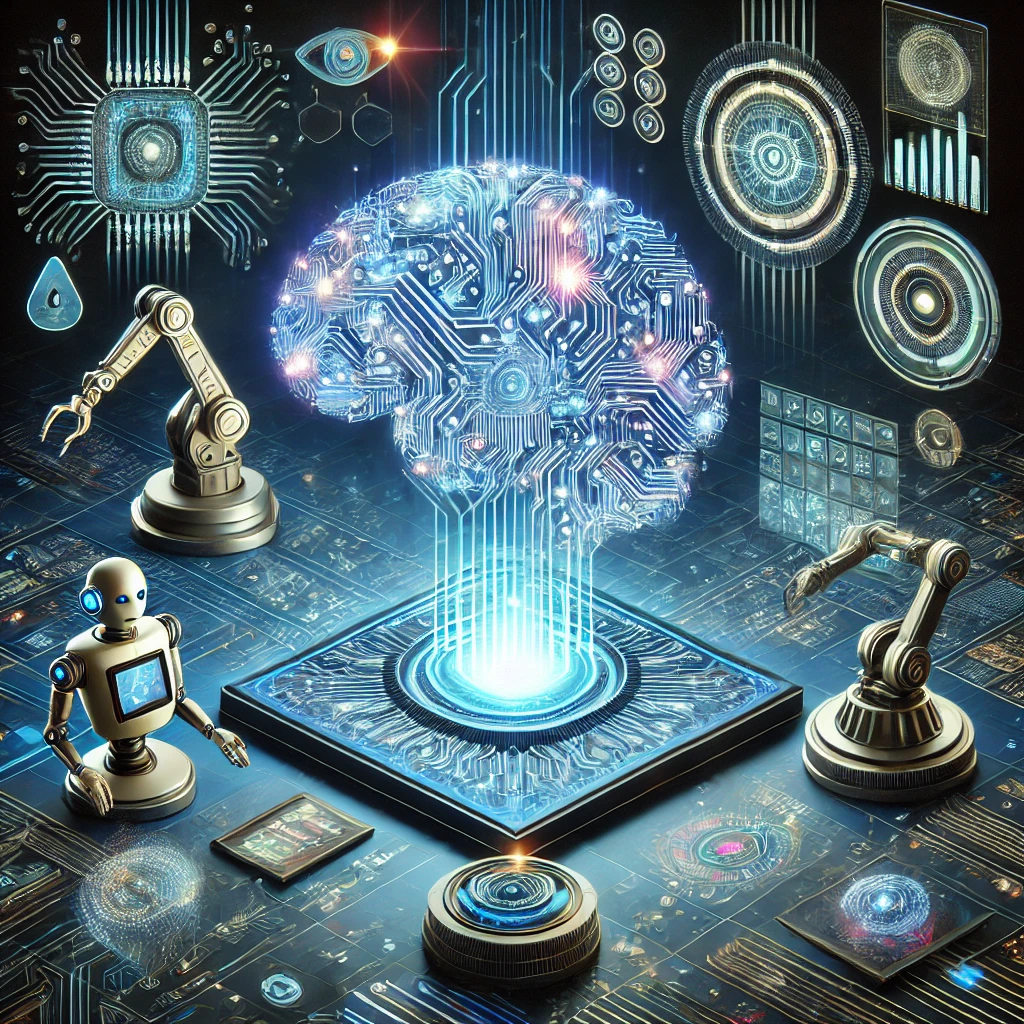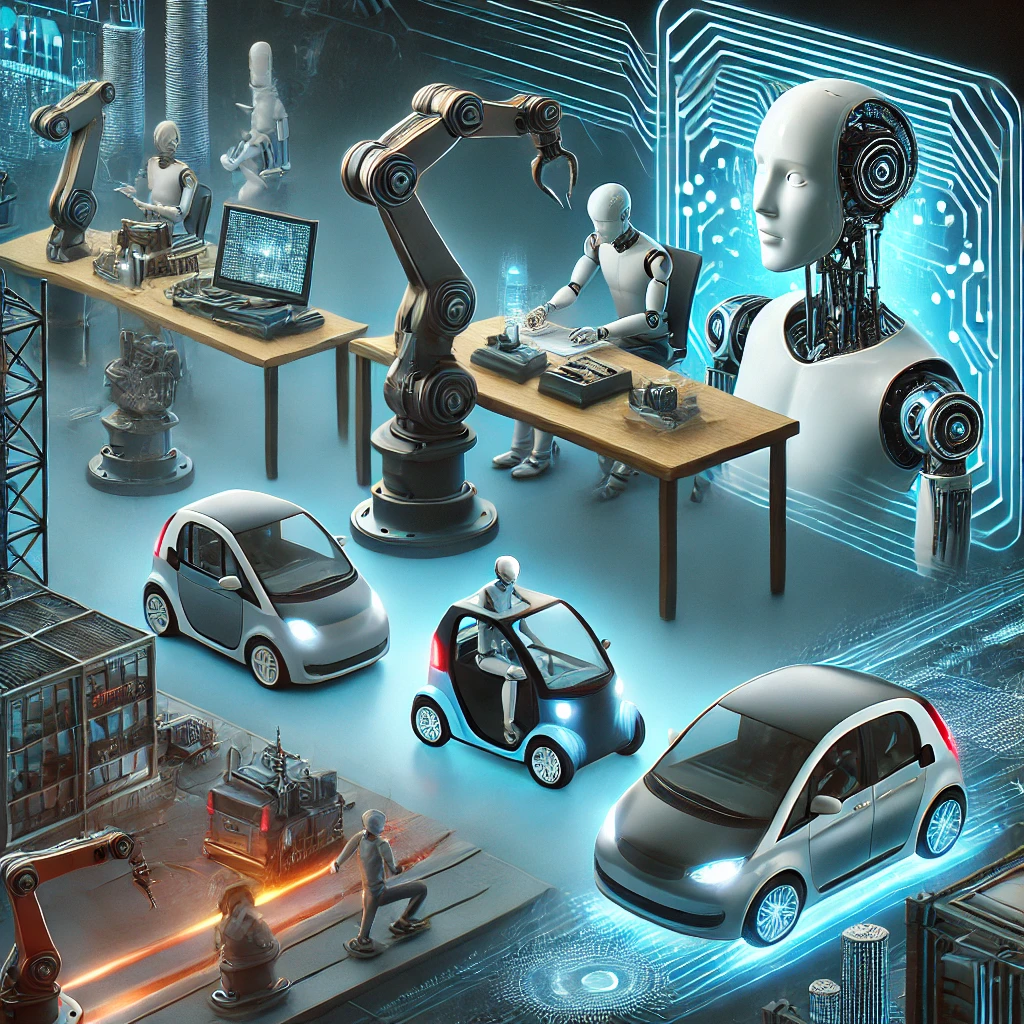Introduction
Artificial Intelligence (AI) is transforming our world at an unprecedented pace. From automating routine tasks to enabling self-driving cars, AI is at the core of many revolutionary advancements. However, while AI brings numerous benefits, it also comes with potential risks and challenges. In this article, we explore the advantages and disadvantages of AI and how it impacts our daily lives.
Advantages of AI
1. Automation of Repetitive Tasks
AI-powered systems excel at handling repetitive and mundane tasks. Businesses use AI-driven bots to automate data entry, email responses, and customer support, significantly reducing manual workload.
2. Enhanced Accuracy and Efficiency
Unlike humans, AI does not suffer from fatigue, emotions, or distractions. AI algorithms can process vast amounts of data with extreme accuracy, reducing errors in tasks such as medical diagnosis, financial calculations, and manufacturing.
3. Smart Decision-Making
AI-powered analytics help organizations make data-driven decisions. Industries like finance, healthcare, and marketing leverage AI to predict market trends, optimize resources, and improve strategies.
4. Improved Healthcare
AI is revolutionizing healthcare with applications like disease detection, robotic surgeries, and personalized medicine. AI algorithms can analyze medical records to identify diseases early, increasing treatment success rates.
5. 24/7 Availability
Unlike humans, AI systems can function round the clock without breaks. This is beneficial in industries like customer service, where chatbots and virtual assistants provide instant support 24/7.
6. Faster and Safer Operations
AI is widely used in self-driving cars, fraud detection, and cybersecurity. It enhances security systems by identifying threats before they cause harm. In hazardous industries like mining and space exploration, AI-powered robots perform dangerous tasks, ensuring human safety.
7. Personalized User Experiences
AI algorithms analyze user behavior to offer personalized recommendations. Netflix, Amazon, and YouTube use AI to suggest content based on viewing history, while e-commerce platforms optimize product recommendations.
8. Cost Savings for Businesses
By automating processes, AI helps companies cut costs related to human labor, customer service, and operational inefficiencies. Predictive maintenance in industries also reduces equipment failure and repair costs.
9. Improved Agriculture
AI-driven smart farming uses drones, sensors, and AI-based predictions to monitor crop health, optimize irrigation, and boost yields, ensuring food security for the growing population.
10. Advancements in Education
AI-powered e-learning platforms, virtual tutors, and smart grading systems personalize learning experiences, helping students grasp concepts faster and improve overall education quality.
Disadvantages of AI
1. High Implementation Costs
Developing and maintaining AI systems is expensive. AI-powered robots, software, and infrastructure require substantial investment, making it challenging for small businesses to adopt.
2. Job Losses Due to Automation
AI is replacing human workers in various industries, leading to massive job displacement. Automated manufacturing, AI-driven customer support, and self-checkout systems reduce the need for human intervention, causing unemployment concerns.
3. Lack of Human Emotions and Creativity
While AI excels at data processing, it cannot replicate human emotions, intuition, or creativity. Jobs requiring emotional intelligence—like counseling, art, and leadership—remain irreplaceable by AI.
4. Ethical Concerns and Bias
AI systems learn from data, which can sometimes be biased. This leads to discriminatory hiring practices, unfair legal decisions, and biased recommendations in AI-powered platforms.
5. Security and Privacy Risks
AI-driven cyber threats, such as deepfake technology, identity theft, and hacking, pose major security concerns. AI can also be misused for mass surveillance, violating personal privacy.
6. Dependence on AI and Reduced Human Skills
As AI takes over critical functions, people may become overly dependent on technology, leading to a decline in problem-solving skills, creativity, and decision-making abilities.
7. AI in Warfare and Weaponization
The development of AI-powered weapons and autonomous military drones raises ethical concerns. If misused, AI-driven warfare can result in devastating consequences, making AI a global security threat.
8. Emotional Disconnect in Human Interaction
As AI chatbots and virtual assistants replace human interactions, customer service and social connections become less personal, leading to dissatisfaction in human communication.
9. Unpredictable AI Behavior
Advanced AI systems may develop unexpected behaviors or make decisions that humans cannot interpret, leading to challenges in controlling AI-powered machines.
10. Legal and Regulatory Challenges
Governments worldwide struggle to create AI regulations that ensure ethical and safe usage. The lack of clear laws and accountability in AI decision-making complicates its widespread adoption.
Conclusion
AI is a double-edged sword. While it enhances efficiency, accuracy, and convenience, it also presents ethical, security, and economic challenges. To maximize AI’s benefits while mitigating risks, it is crucial to develop responsible AI policies, invest in reskilling programs, and ensure that AI is used for ethical purposes. As AI continues to evolve, striking a balance between innovation and human well-being remains the key to its sustainable future.
Most Searched Keywords Used in This Article
- Advantages of AI
- Disadvantages of AI
- Impact of AI on jobs
- AI in healthcare
- AI automation
- Future of AI
- AI in daily life
- Ethical concerns in AI
- AI and privacy issues
- AI-powered cybersecurity

